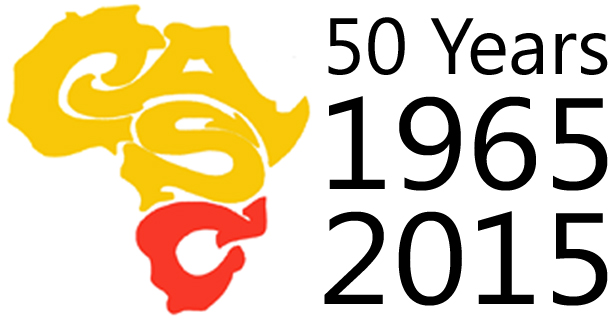The Audrey Richards Lecture in African Studies 2022
Duration: 1 hour 41 mins
Share this media item:
Embed this media item:
Embed this media item:
About this item

| Description: |
“Tragedy, Disputatiousness, and Unruly Affective Economies: From the Greeks to Postcolonial Literature” - Prof Ato Quayson, Stanford University.
This lecture was given at Trinity Hall on Tuesday 31 May 2022. |
|---|
| Created: | 2022-06-06 13:37 |
|---|---|
| Collection: | Centre of African Studies |
| Publisher: | University of Cambridge |
| Copyright: | Victoria Jones, Ato Quayson |
| Language: | eng (English) |
| Keywords: | Postcolonial Literature; Classics; African Literature; tragedy; |
| Abstract: | This lecture will pick up on an element of literary tragedy that I raised in Tragedy and Postcolonial Literature but did not fully elaborate, namely, the place of disputatiousness in the history of tragic form and how this might help us to further tragedy from the Greeks to African literature. The Greeks give us great examples of disputatiousness: Oedipus vrs. Tiresias, Clytemnestra vrs Agamemnon, Medea vrs Jason, and Antigone vrs Creon, among others. But the determining mark of the Greek tragic characters was what might be described as their zero-sum wrath. Their sense of rightness goes as far as courting possible self-destruction. I side with Jean Pierre-Vernant in reading Greek tragedy as illustrating the incomplete transition between religious and ethical discourses, such that concepts such as dikē(justice), nómos (law and custom), and ethos (the fundamental character or spirit of a culture) all come to do double service and are thus articulated by individual characters are the subjects of life-and-death disagreements. In Shakespeare’s big tragedies of Hamlet, King Lear, Othello, Macbeth, and Antony and Cleopatra, historical disputatiousness is aligned to unruly affective economies. While the link between the two domains of history and affect helps to mark Shakespeare as modern, in postcolonial tragedy it is the conditions of precarity and the ambiguation of attitudes to individual and collective acts of heroism that demarcates the tragic. This is what we find when we reroute tragic history through Fanon. Whether with Wole Soyinka’s Death and the King’s Horseman, Arundhati Roy’s The God of Small Things, Toni Morrison’s Beloved, or Junot Diaz’s Brief Wondrous Life of Oscar Wao, repeatedly what generates affective unruliness are the conditions that mark both colonial and postcolonial modernity and that render our actions against disorder themselves incoherent and often futile. I will be drawing examples from different literary traditions and cultures but will focus for illustration specifically on the rural novels of Chinua Achebe for examples to anchor the argument for the audience.
******* Ato Quayson is a Fellow of the Ghana Academy of Arts and Sciences, the Royal Society of Canada, and Corresponding Fellow of the British Academy. He is Professor of English at Stanford. Quayson studied for his undergraduate degree at the University of Ghana and took his Ph.D. from the University of Cambridge in 1995. He held a Stipendiary Junior Research Fellowship at Wolfson College in Oxford from 1994-1995 before returning to Cambridge to become Lecturer then Reader in Commonwealth and Postcolonial Literature in the Faculty of English from 1995-2005. While at Cambridge he was also Director of the Centre for African Studies and a Fellow of Pembroke College. Prior to Stanford he was Professor of African and Postcolonial Literature at New York University (2017-2019) and before that Professor of English and inaugural Director of the Centre for Diaspora and Transnational Studies at the University of Toronto (2005-2017). In 2016 he was appointed University Professor at the University of Toronto, the highest distinction that the university can bestow. Professor Quayson has published 5 monographs and 8 edited volumes. His monographs include Strategic Transformations in Nigerian Writing (1997), Postcolonialism: Theory, Practice, or Process? (2000), Calibrations: Reading for the Social (2003), and Aesthetic Nervousness: Disability and the Crisis of Representation (2007). Oxford Street, Accra: City Life and the Itineraries of Transnationalism (2014) was co-winner of the Urban History Association's 2015 Best Book Prize (non-North America) and was named in The Guardian as one of the 10 Best Books on Cities in 2014. His edited volumes include Relocating Postcolonialism (with David Goldberg, 2001), African Literary Theory: An Anthology of Literary Criticism and Theory (with Tejumola Olaniyan, 2007), Fathers and Daughters: An Anthology of Exploration (2008), Labor Migration, Human Trafficking, and Multinational Corporations, (with Antonela Arhin, 2012), The Cambridge History of Postcolonial Literature, 2 volumes (2012), A Companion to Diaspora and Transnational Studies (with Girish Daswani, 2013), and The Cambridge Companion to the Postcolonial Novel (2016). He also wrote a new Introduction and Notes to the Penguin Classics edition of Nelson Mandela’s No Easy Walk to Freedom (2003). He is just completed Tragedy and Postcolonial Literature for Cambridge University Press and also working with Grace Tolequé on Accra Chic: A Locational History of Fashion in Accra for Intellect Books and Chicago University Press. He is also working on a graphic novel of the history of Accra from the 1650s to present times. Professor Quayson is President of the African Studies Association. |
|---|---|
Available Formats
| Format | Quality | Bitrate | Size | |||
|---|---|---|---|---|---|---|
| MPEG-4 Video | 640x360 | 1.71 Mbits/sec | 1.27 GB | View | Download | |
| WebM | 640x360 | 493.2 kbits/sec | 364.85 MB | View | Download | |
| iPod Video | 480x360 | 485.27 kbits/sec | 358.98 MB | View | Download | |
| MP3 | 44100 Hz | 251.36 kbits/sec | 185.95 MB | Listen | Download | |
| Auto * | (Allows browser to choose a format it supports) | |||||

